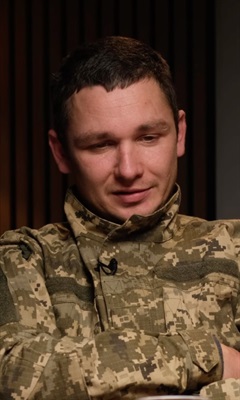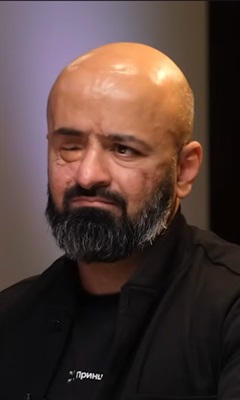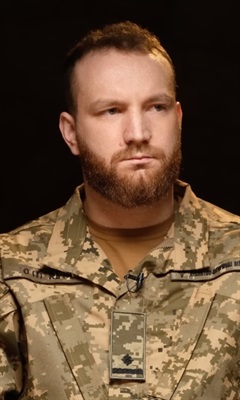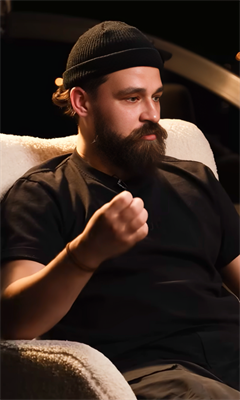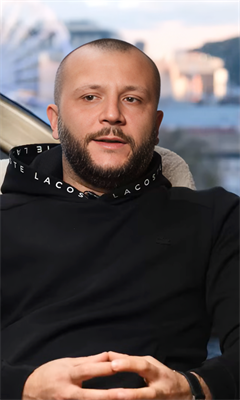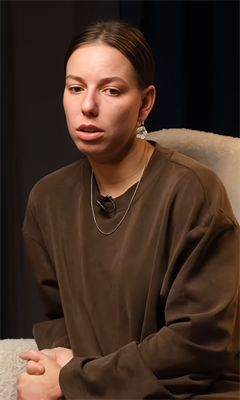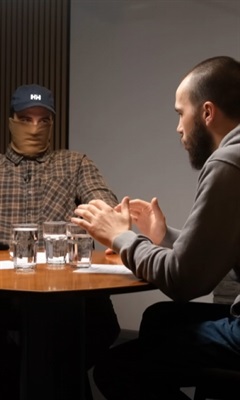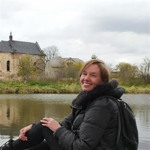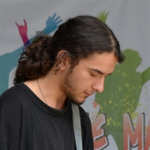She bought a minibus to get her parents out of Mariupol. The girl who saved her family and neighbors
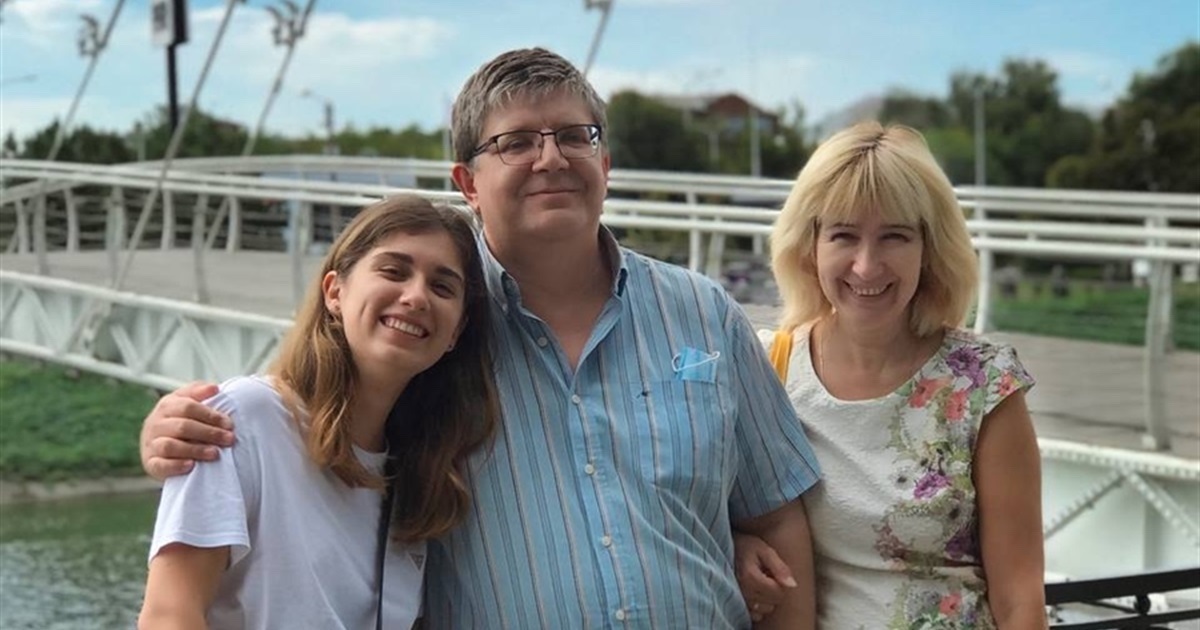
The girl told Svoi.Global what she was feeling on the way to Mariupol, what scared her, and what made her cry. She saw people who were resigned to death, the ruins of her beloved city, and those who took the right to peaceful life away from her family.
The search for my parents became my job
I was in touch with my parents only for the first three days, until February 27. I was persuading them to leave.
Mom was really scared of the war and the shelling but wanted none of the evacuation. She said, “We survived in 2014. We will stand strong. Ukraine will defend us, don’t worry.” Nobody could even imagine that Mariupol would be razed to the ground.
Our communication was cut off for 25 days. It was horrible. Especially when I saw the first photos of the destroyed city and found out that my classmates had lost their relatives.
The search for my parents became my job for almost a month. I was writing to all the chat rooms in the city, to my neighbors and relatives to find out at least something.
At first, I was looking for volunteers or acquaintances who would go to Mariupol to take their family out and could take my parents along as well. The volunteers refused. Their mission was to take as many people from bomb shelters as possible. They don’t pick up older people at their homes.
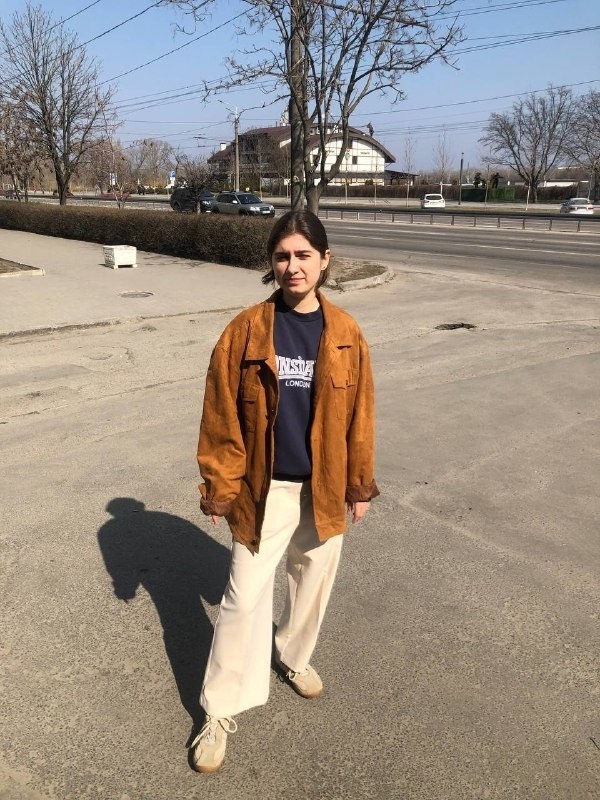
After the exhaustive search, I realized that there was nobody but me to save and protect my parents. I didn’t waste a moment hesitating whether I should go get them or not. From the first day, I knew I would do it.
I won’t tell you where we are
On day 28 of the full-scale war, my parents found a place with the working mobile signal. Mom called me. I finally heard her voice. Her first words were, “Don’t you dare to come; I won’t tell you where we are".
Inside the city, the people believe that there is no evacuation, and you will surely die while leaving the city. There is a massive amount of disinformation spread about the actions of the Ukrainian military.
Mom told me that a shell hit their roof, and they didn’t have much food left. Finally, I persuaded them, and they agreed to leave. But the question was – how? A car was needed to get into the city. I didn’t have one, and I can’t drive. The solution was found in purchasing a minibus.
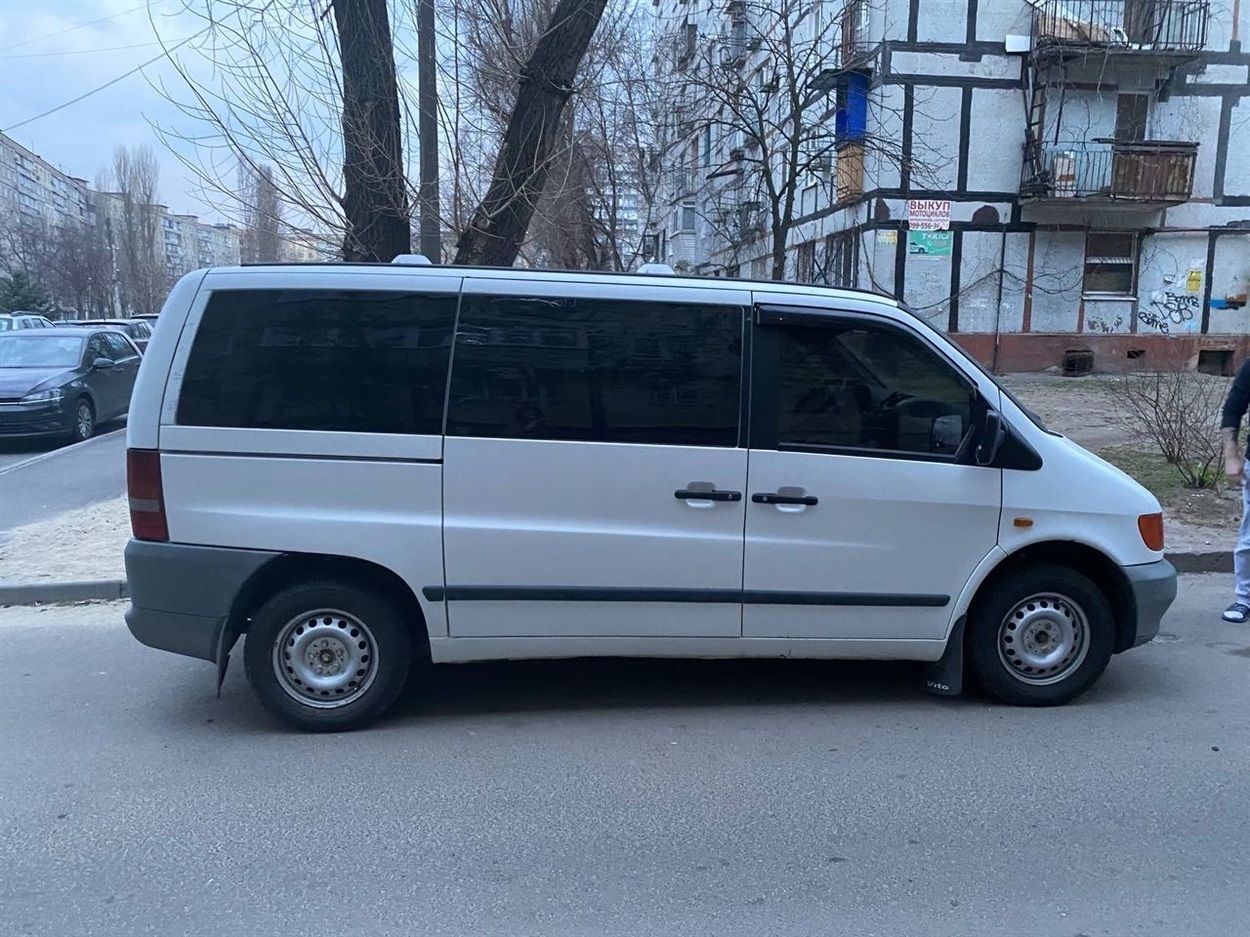 Family and friends chipped in on a van. Copyright: Nastia Pavlova
Family and friends chipped in on a van. Copyright: Nastia Pavlova
I will tell you at once that at the Russian checkpoints, they can seize a car if the owner is not in it. So, the car was registered in my name. In one of the chats where people are looking for their relatives, I found a driver. He needed to bring medicines to his mother-in-law.
We arranged everything, and on Monday, March 21, we went from Zaporizhzhia to Mariupol with a group of volunteers.
Before the trip, we filled out a questionnaire about who we were and where we were going. Nobody wanted to be the first car in the line of 30 vehicles. My driver said, “If nobody wants to do it, I will”. I was petrified.
Yet, your anxiety is growing with each kilometer. On our way, we missed a moment when we got to the first Russian checkpoint. They were in the same uniform as our military, wearing pixel [camouflage]. Only the bands on their arms were different. Theirs were white.
We talked guardedly at all the checkpoints. We didn’t say, “Glory to Ukraine!” It helped us avoid complicated situations.
After the first Russian checkpoint, the area of no safety started, where human rights were not respected. It could be felt. That’s when I got really scared.
They aimed a submachine gun at us, they took my driver’s phone
We were driving from Zaporizhzhia to Mariupol for almost nine hours. We left at nine a.m., and arrived at half-past five. At each checkpoint, the car was inspected and the documents were checked. We had to wait for the entire group to be checked. At the first Russian checkpoints, they weren't aggressive, I would say. Some scrawny boys asked us shyly to open the car.
The closer we were to Mariupol, the more military there were with DNR chevrons [Donetsk People’s Republic – the temporarily occupied territory of Donetsk region]. These ones were rude.
While checking the documents at one checkpoint, an officer aimed a submachine gun at our heads. At another one, they took away my driver’s phone.
“I want to call my relatives; I am not a looter,” – said a DNR officer and gave my driver 200 rubles and 200 hryvnias [a total of about 9 euros].
We asked him not to take the phone away, but he ignored us.
The closer we were to Mariupol, the harsher questions the military asked. Mainly, they asked who we were – volunteers, transporters, or just someone going to get their families. They’d reproach us, “Why are you driving here? The volunteers are being shelled.” We explained that we were going to collect my elderly parents and bring in some medicines. We were just barely let through.
An ordinary apocalypse
We entered Mariupol shortly before the curfew. The atmosphere in the city was dismal. There were burnt cars and tanks around, gaping holes in the houses, blackened buildings, whose top stories had fallen in. The crowds of really filthy people with empty eyes were going for humanitarian aid along the mined road. Everything had been taken away from them, and their relatives perished.
There were enormous piles of rubble around; the trash was floating in the air. This was the apocalypse.
You see it, and you can’t comprehend it. The locals were so resigned to all this that they didn’t pay any attention to the shelling and explosions. They were just sitting in the yard, cooking. A tank with DNR symbols was standing next to them; someone was shooting back.
It was difficult to drive in the city. There were many fallen poles on the roads. The Russian military were posted one every 300–500 meters. They inspected the car and checked the papers. At one checkpoint, we tried to find out whether we could go further, but they swore at us in reply. There was fighting on the next street.
While we were circling around the city, the curfew started. We had to go to Volodarsk and stay on the school grounds, where the refugee camp is located. From there, they are taken to Rostov or Donetsk by bus.
People at the camp have lost everything. They know that nobody will come to get them. The camp is their only chance for survival.
Suddenly I felt deeply pained by what I saw. The people were in every corner of the school – on the floor and in the hallways, in the classrooms and the gym, lying almost one on top of another. All kinds of people: grandmothers, grandfathers, women, children. The air was stuffy, even though it was rather cold.
You can have tea or coffee at the camp, but it is rather weak, to put it mildly. You can hear horrible stories while standing in line. One old lady said she had been staying without food in the cellar for ten days. Every day, she had only one raw egg to drink. On hearing these words, I started crying.
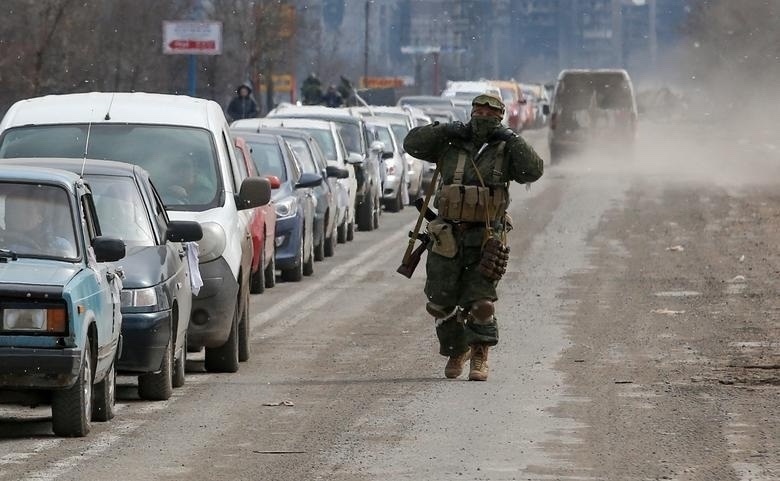 Besieged Mariupol
Besieged Mariupol
The people were resigned to death
The next day, I managed to get to my mother and father. I couldn’t rejoice, but I couldn’t weep either.
“We will weep when we are in the Ukrainian territory,” I said to myself and my parents.
There was no time for packing and showing emotions. Everyone froze. We didn’t know what to take with us. I advised Mom to take her favorite clothes.
We took eight people into the minibus – my parents and their neighbors. What was and still is really disappointing and hurtful for me is that many people are in an informational vacuum. They listen to the DNR radio and believe that they are being shelled by the Ukrainian army. They are waiting for all this to end. They don’t care who wins. They just want to stay alive, even if Mariupol is occupied.
These people shouldn’t be blamed. They are under shelling every day. Many don’t want to leave, abandon their home, or the graves of a husband or a wife.
Mom promised to pray
On our way back, they inspected only men. They stripped them to the waist, looking for Azov tattoos. We were taking out the men with “the white card” – the elderly, men with heart problems. However, those at the checkpoints still found faults with them. They said, “It is written in your white card that you are not eligible for service during peacetime, but there is a war now. Why aren’t you fighting? Are you a coward?”
During our trip, one neighbor remembered that he had taken a jackknife along. We threw it out the window. Knives are prohibited.
When we saw our military, it pained me again. You are taking your family to a safe place, while our guys stay to protect us. I wanted to hug them.
On seeing the Ukrainian checkpoint, everybody started weeping. Mom asked those guys’ names and promised to pray for them. I was overwhelmed by sadness and despair from everything I had seen in Mariupol. All values of humanity, humanism, love, and justice rang so hollow.
Someone just decided that they can kill or take away people’s homes, not bothering themselves with any questions. The only thing that warms my heart is that the good and the light will win as long as our army is there.
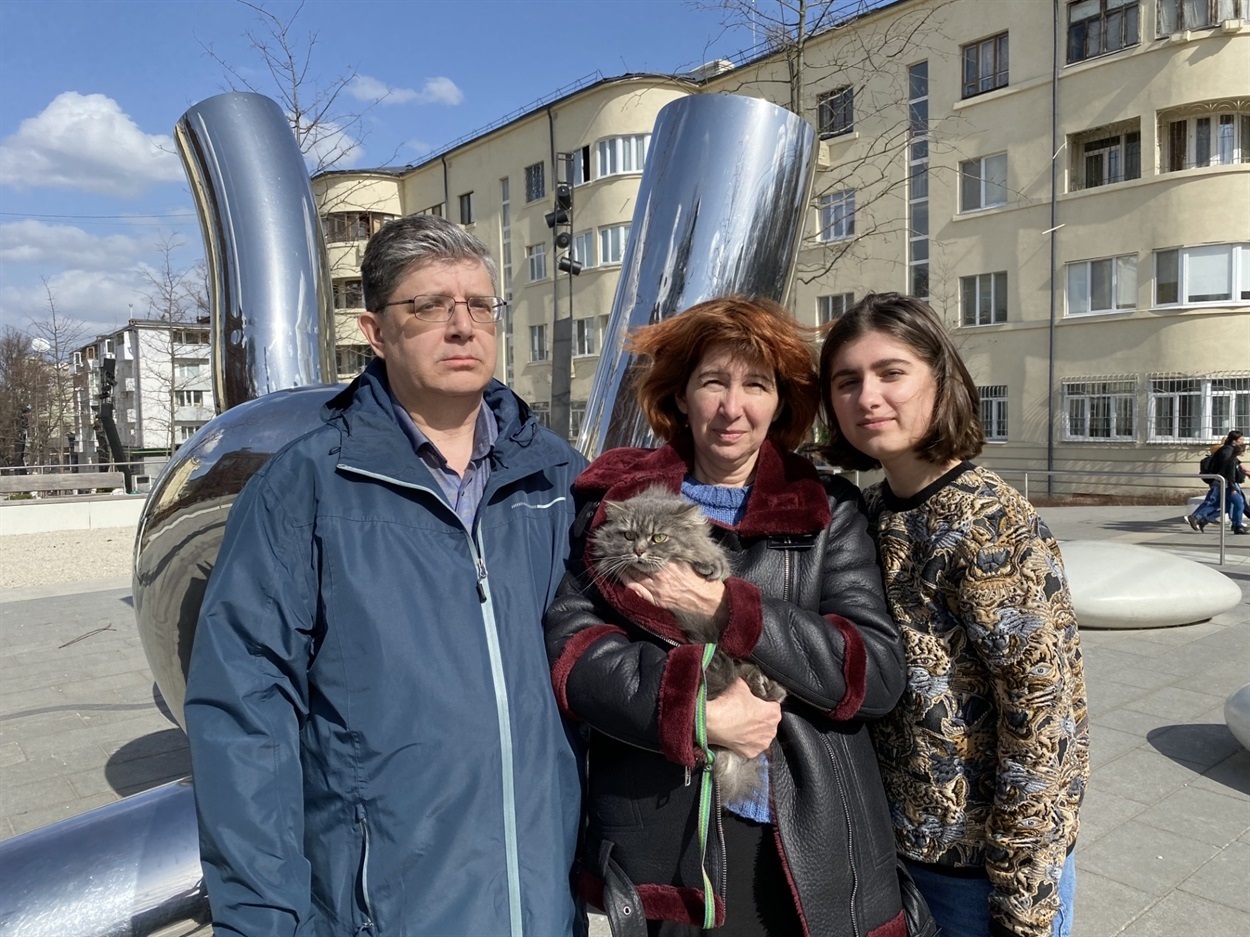 Nastia and her family on the safe ground. Copyright: Nastia Pavlova
Nastia and her family on the safe ground. Copyright: Nastia Pavlova
Now the Pavlovs are safe. Nastia considers her trip a heroic deed. She confesses that she is not ready to go to Mariupol again. It is too painful for her to see the destroyed city of her childhood. The minibus was successfully sold. It is going to continue doing good deeds together with the Plast, the Ukrainian Scouting movement.



